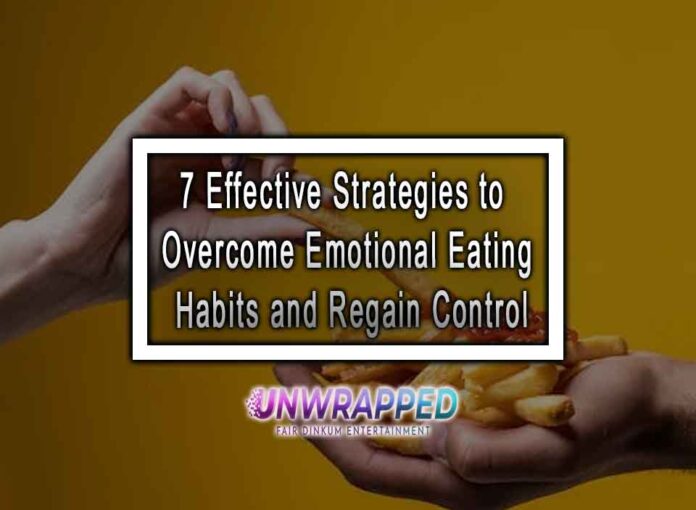Discover Powerful Strategies to Break Free from Emotional Eating Habits
Are you tired of turning to food every time you experience stress, boredom, or sadness? Emotional eating can feel like an endless cycle, impacting your physical health and emotional well-being. But fear not! We’ve curated a list of proven strategies to help you overcome emotional eating habits and regain control over your relationship with food. Say goodbye to those mindless snacking sessions and hello to a healthier, happier you!
1. Identify Your Triggers
Before tackling emotional eating head-on, it’s essential to understand what triggers these behaviors in the first place. Take time to reflect on the emotions, situations, or events that lead you to reach for food. Is it stress from work? Loneliness? Boredom? Identifying your triggers will provide valuable insight into your emotional eating patterns, allowing you to develop targeted strategies.
2. Develop Healthy Coping Mechanisms
Instead of relying on food as a way to cope with your emotions, explore alternative activities that promote emotional well-being. Engage in regular exercise, practice mindfulness or meditation, journal your thoughts, or connect with a support network of friends and loved ones. These healthier coping mechanisms will divert your attention from food and provide genuine emotional fulfillment.
3. Practice Mindful Eating
Mindful eating is a powerful tool that encourages you to slow down and savor each bite. Pay close attention to the taste, texture, and aroma of your food. Chew slowly, savor the flavors, and listen to your body’s hunger and satiety cues. By becoming more mindful of your eating habits, you can better differentiate between physical hunger and emotional cravings, making healthier choices.
4. Build a Nourishing Meal Plan
Ensure your daily meals consist of a variety of nutrient-dense foods, including whole grains, lean proteins, fruits, and vegetables. Balancing your nutritional intake can positively impact your mood and overall well-being. Avoid restrictive diets that may trigger emotional eating episodes, and instead focus on nourishing your body with wholesome, satisfying meals.
5. Create a Supportive Environment
Seek out individuals who understand your journey and provide the support you need to overcome emotional eating. Engage in activities with friends that do not revolve around food, such as hiking, dancing, or attending workshops. Consider joining support groups or working with a therapist who specializes in emotional eating to gain valuable insights and guidance.
6. Practice Self-Care
Engage in regular self-care activities that bring you joy and help manage stress. Take relaxing baths, read inspiring books, practice yoga, or engage in hobbies that uplift your spirits. By prioritizing self-care, you’ll reduce the need for emotional eating as you develop healthier ways to nurture and support yourself.
7. Seek Professional Help if Needed
If you find it challenging to overcome emotional eating habits on your own, don’t hesitate to seek professional help. Registered dietitians, therapists, and psychologists can provide specialized guidance tailored to your needs. They will help you address underlying emotional issues, develop personalized strategies, and provide ongoing support as you work towards a healthier relationship with food.
Embrace a Healthier Relationship with Food and Your Emotions
Breaking free from emotional eating habits is a journey that requires self-awareness, resilience, and support. By identifying your triggers, adopting healthy coping mechanisms, practicing mindful eating, prioritizing balanced nutrition, surrounding yourself with a supportive community, practicing self-care, and seeking professional help when needed, you can regain control over your emotional eating habits and develop a healthier, more balanced approach to food. Embrace these strategies, empower yourself, and enjoy a life where food serves as nourishment rather than an emotional crutch. You’ve got this!
Read on: Menstrual Cup Myth Debunked: Separating Fact from Fiction











